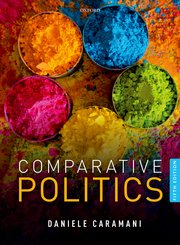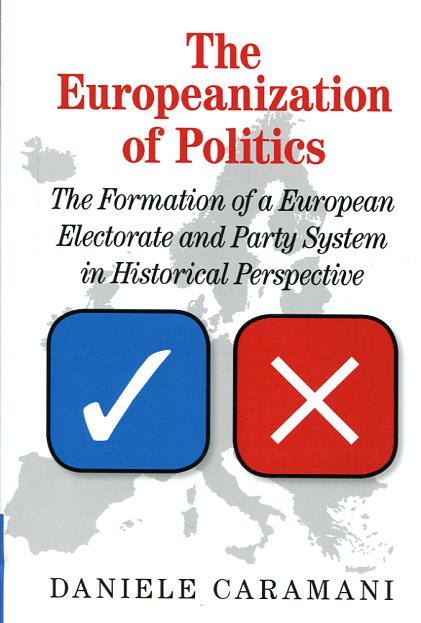Comparative politics
- ISBN: 9780198820604
- Editorial: Oxford University Press
- Fecha de la edición: 2020
- Lugar de la edición: Oxford. Reino Unido
- Edición número: 5th ed.
- Encuadernación: Rústica
- Medidas: 25 cm
- Nº Pág.: 619
- Idiomas: Inglés

With unparalleled empirical material, this is the most comprehensive introduction to comparative politics written by the leading experts in the field who bring together a diverse and informed international perspective on comparative politics. Five new authors join the team for the fifth edition, bringing fresh ideas and insights to the comparative analysis the book provides.
The new edition has been brought fully up to date with coverage of Brexit, Trump and the resurgence of Populism, and a greater focus on developing countries through a reworked Chapter 15 on Regions and Ethnicity. Furthermore, the chapter on Political Culture includes more in-depth coverage of gender and representation in the era of the #MeToo movement. Importantly, issues around migration and how different countries respond are explored in Chapter 24 on Globalization.
An unrivalled amount of empirical material in the text and in the supporting online resources illustrates key similarities and differences of political systems in practice. The wealth of empirical data also encourages students to go beyond the 'what' of comparison to the 'how'. Combining cutting edge treatment of theories and truly global geographical coverage, this exciting textbook is essential reading for all comparative politics students.
Section I: Theories and methods
1: The relevance of comparative politics, Bo Rothstein
2: Approaches in comparative politics, B. Guy Peters
3: Comparative research methods, Hans Keman and Paul Pennings
Section II: The historical context
4: The nation-state, Gianfranco Poggi
5: Democracies, Aníbal Pérez-Liñán
6: Authoritarian regimes, Natasha Lindstaedt
Section III: Structures and institutions
7: Legislatures, Amie Kreppel
8: Governments and bureaucracies, Wolfgang C. Müller
9: Constitutions, rights, and judicial power, Alec Stone Sweet
10: Elections and referendums, Michael Gallagher
11: Multilevel governance, Liesbet Hooghe, Gary Marks, and Arjan H. Schakel
Section IV: Actors and processes
12: Political parties, Richard S. Katz
13: Party systems, Daniele Caramani
14: Interest groups, Roland Erne
15: Regions, James Bickerton and Alain-G. Gagnon
16: Social movements, Dieter Rucht
17: Political culture, Christian Welzel and Ronald Inglehart
18: Political participation, Herbert Kitschelt and Philipp Rehm
19: Political communication, Frank Esser and Barbara Pfetsch
Section V: Public policies
20: Policy making, Christoph Knill and Jale Tosun
21: The welfare state, Kees van Kersbergen and Philip Manow
22: The impact of public policies, Jørgen Goul Andersen
Section VI: Beyond the Nation-State
23: The EU as a new political system, Simon Hix
24: Globalization and the nation-state, Georg Sørensen
25: From supporting democracy to supporting autocracy, Peter Burnell







